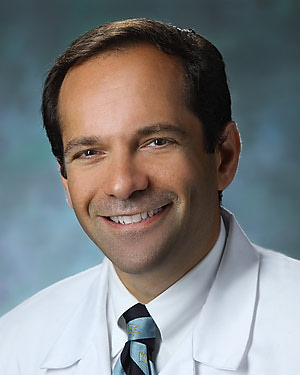Research Lab Results
-
Tamara O'Connor Lab
The O'Connor Lab studies the molecular basis of infectious disease using Legionella pneumophila pathogenesis as a model system. We are looking at the network of molecular interactions acting at the host-pathogen interface. Specifically, we use L. pneumophila pathogenesis to examine the numerous mechanisms by which an intracellular bacterial pathogen can establish infection, how it exploits host cell machinery to accomplish this, and how individual proteins and their component pathways coordinately contribute to disease. We are also studying the role of environmental hosts in the evolution of human pathogens. Using genetics and functional genomics, we compare and contrast the repertoires of virulence proteins required for growth in a broad assortment of hosts, how the network of molecular interactions differs between hosts, and the mechanisms by which L. pneumophila copes with this variation.
-
Post Lab
The Post Lab is involved in the Multi-Ethnic Study of Atherosclerosis (MESA), a collaborative study of the characteristics of subclinical cardiovascular disease (that is, disease detected non-invasively before it has produced clinical signs and symptoms) and the risk factors that predict progression to clinically overt cardiovascular disease or progression of the subclinical disease. As MESA researchers, we study a diverse, population-based sample of 6,814 asymptomatic men and women aged 45-84. Approximately 38 percent of the recruited participants are white, 28 percent African-American, 22 percent Hispanic, and 12 percent Asian, predominantly of Chinese descent. Participants were recruited from six field centers across the United States, including Johns Hopkins University. Each participant received an extensive physical exam to determine a number of conditions, including coronary calcification, ventricular mass and function, flow-mediated endothelial vasodilation, standard coronary risk factors, sociodemographic factors, lifestyle factors, and psychosocial factors. Selected repetition of subclinical disease measures and risk factors at follow-up visits have allowed study of the progression of disease. Participants are being followed for identification and characterization of cardiovascular disease events, including acute myocardial infarction and other forms of coronary heart disease (CHD), stroke, and congestive heart failure; for cardiovascular disease interventions; and for mortality. Wendy S. Post, MD, MS, is an associate faculty, Welch Center for Prevention, Epidemiology, and Clinical Research, Johns Hopkins University, and a professor of medicine. -
Joel Blankson Lab
Work in the Joel Blankson Lab explores the mechanism of control of HIV-1 replication in a cohort of patients known as elite controllers or elite suppressors. These patients are HIV-1 seropositive but maintain levels of viremia that are below the limit of detection of standard clinical assays. We feel that elite suppressors represent a potential model for a therapeutic HIV vaccine. Our central hypothesis is that many of these patients are infected with fully replication-competent HIV-1 isolates that are held in check by the immune system. To test this hypothesis, we are studying many different host and viral factors in these patients.
-
Joseph Margolick Lab
Research in the Joseph Margolick Lab focuses on the many effects of HIV/AIDS on human health. We are particularly interested in the mechanisms of T-cell loss and preservation among people infected with HIV and the evaluation of human immune functions.
-
Gregg Semenza Lab
The Gregg Semenza Lab studies the molecular mechanisms of oxygen homeostasis. We have cloned and characterized hypoxia-inducible factor 1 (HIF-1), a basic helix-loop-helix transcription factor. Current research investigates the role of HIF-1 in the pathophysiology of cancer, cerebral and myocardial ischemia, and chronic lung disease, which are the most common causes of mortality in the U.S.
-
Clinical Laboratory and Biomarkers Core
The Clinical Laboratory and Biomarkers Cores will coordinate access to laboratory expertise, testing, training, specimen repositories and Good Clinical Laboratory Practices (GCLP). The goals of this core are to assure that all JHU HIV investigators have access to and utilize appropriate, validated and, where applicable, certified laboratory assays. The core will also maintain a biomarker specimen repository for storage cataloguing and utilization of biological specimens. -
Pulmonary Infection and Inflammation Research Lab
The Jia lab performs basic and translational research into the mechanisms of and therapeutic strategy for viral and bacterial infection-induced inflammatory lung diseases, one of the leading causes of death in pulmonary diseases, especially for the ongoing pandemic of the SARS-CoV-2 mediated COVID-19. Our work has identified novel roles of Angiotensin-converting enzyme 2 (ACE2) in the inflammatory response to viral and bacterial lung infection and its complex contributions into the pathogenesis and disease progression and outcome of COVID-19. In seeking to translate these findings to clinical studies, we have been working on a collaboration with other investigators, developing novel diagnostic, preventive, and therapeutic tools in combating the devastating COVID-19, even in the era of effective vaccine prevention. These studies are funded by NIAID.
-
Andrew Lane Lab
The Lane laboratory is focused on understanding molecular mechanisms underlying chronic rhinosinusitis, particularly the pathogenesis of nasal polyps, as well as inflammation on the olfactory epithelium. Diverse techniques in molecular biology, immunology, and physiology are utilized to study epithelial cell innate immunity, olfactory loss, and response to viral infection. Ongoing work explores how epithelial cells of the sinuses and olfactory mucosa participate in the immune response and contribute to chronic inflammation. The lab creates and employs transgenic mouse models of chronic nasal/sinus inflammation to support research in this area. Collaborations are in place with the School of Public Health to explore mechanisms of anti-viral immunity in influenza and COVID-19.
-
Alison Moliterno Lab
The Alison Moliterno Lab studies the molecular pathogenesis of myeloproliferative disorders (MPDs), including polycythemia vera, essential thrombocytosis and idiopathic myelofibrosis. Our research is focused on the genetic and epigenetic lesions associated with MPDs, with the goal of improving diagnosis and treatment for these disorders. -
Brendan Antiochos is a physician scientist in the Division of Rheumatology. His main interest is the role of the innate immune system in the pathogenesis of rheumatic diseases. Current work focuses on the identification of specific endogenous nucleic acids that drive pathogenic innate immune responses in these conditions. More information about his group and work can be found at his lab website.


